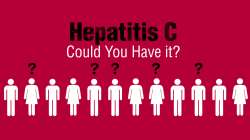World Hepatitis Day 2017: 9 key facts about Hepatitis C your doctor wants you to know
28th July is observed as World Hepatitis Day to raise awareness about this silent killer, Hepatitis.

Hepatitis is caused by inflammation of the liver tissue. The most surprising and dangerous fact about Hepatitis is that some of the people don’t even know that they have Hepatitis until too late. In some, the symptoms are not very prominent while others develop yellow coloration of skin and whites of the eyes, poor appetite, nausea, lethargy, abdominal pain and diarrhoea. It can be acute or chronic depending on the time period it lasts for. The chronic form of hepatitis can lead to scarring of the liver, liver failure or liver cancer. Hepatitis C is the most common form of viral hepatitis. It is transmitted through contaminated blood transfusions, needles and in some patients the cause is unknown.
28th July is observed as World Hepatitis Day to raise awareness about this silent killer. So on this day, let’s gather information about the disease that affects millions every year.
- Hepatitis C is caused by hepatitis C Virus. It can be both acute and chronic, ranging in severity from a mild illness to a lifelong one.
- Hepatitis C virus is a blood borne virus and mostly it is transmitted through infected blood transfusions. This may happen through injection or drug use, unsafe needle practices and transfusion of unscreened blood.
- Hepatitis C can be transmitted sexually and congenitally. However, the occurrence of Hepatitis C is uncommon in such cases.
- Breastfeeding, food and water doesn’t spread hepatitis C. Also, physical contacts like hugging, kissing and sharing food will not spread the virus.
- It is estimated by World Health Organisation that 71 million people around the world have chronic hepatitis C infection.
- A majority of those with chronic infection will develop liver cirrhosis or liver cancer in life.
- Every year, approximately 399,000 people succumb to hepatitis C, mostly because of cirrhosis and hepatocellular carcinoma.
- 95% of people with chronic hepatitis C can be cured using antiviral medicines and reduce the deaths by cirrhosis and liver cancer. But the access to diagnosis and treatment is very poor.
- Currently, there is no vaccine to shield people from hepatitis C, though the research in the field is ongoing.
Also Read: Amitabh Bachchan chosen WHO Goodwill Ambassador for Hepatitis
Symptoms of Hepatitis C
80% of people don’t exhibit any hepatitis C symptoms.
Those who are acutely symptomatic show fever, fatigue, decreases appetite, nausea, vomiting, abdominal pain and dark urine as the symptoms.
Diagnosis of Hepatitis C
Some people are asymptomatic, due to which very few people are diagnosed during acute phase. Even in the case of chronic HCV infection, the disease goes undiagnosed as the infection remains asymptomatic until decades after infection. It leads to severe liver damage.
Also Read: HIV, Hepatitis patients have higher chances of committing suicide
People at Hepatitis C Risk
- People who are at increased risk of Hepatitis C infection are:
- People who do drugs.
- People who take intranasal drug
- Ones of received infected blood products in the hospitals with poor infection control practices.
- Children born to mothers with HCV infection
- People who have sexual contacts with HCV infected people.
- Patients of HIV infection
- Previously incarcerated persons
- People who have had tattoos or piercing with infected needles.
Also Read: Amitabh Bachchan recalls his struggle with Hepatitis B and Tuberculosis at a mobile app launch
Not all Hepatitis C infections need treatment, as the immune response of the body clears up the infection and some people with chronic infection don’t develop liver damage. Sofosbuvir, daclatasvir and the sofosbuvir/ledipasvir combination are the preferred drugs as per the WHO guidelines.
For more lifestyle news, follow our Facebook page